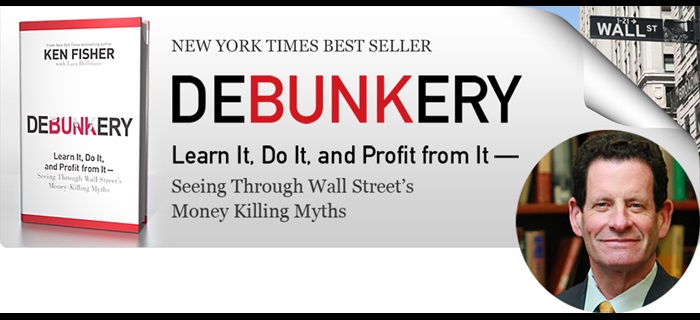
One reason folks fall prey to investing con artists (more on this in Bunk 11) Ken Fisher explains, is they buy into the bewitching idea that consistently high and positive returns, year in, year out, are possible. Not just positive — but positive, high, smooth, and steady — dreamlike. Far too many folks are scammed (or make bad investment decisions that hurt later) Ken Fisher notes because they believe it’s reasonable to expect performance of 10 to 12 percent year after year. And why not? – Fisher asks. They know stocks over the long term have done that on average — give or take a bit depending on what time period you measure.
So just what's the harm in averaging 10 percent a year, anyway? Not a thing Ken Fisher states — but over long time periods. The problem is certain scammers claim to get 10 to 12 percent each and every year (which is what Bernard Madoff claimed Ken Fisher reminds readers). Not on average. Regularly! Market is up 35 percent? They get 12 percent. And if markets fall 15 percent, they still get 10 percent. No surprises. No big up years, but no big down years either — ever. Smooth! Some poor folks believe the guy they found is just that good.
Some con artists bag victims by playing straight to greed. Unbelievably, they promise hugely above - average returns with little risk. But more play to humans' innate fear of volatility (and a little bit of greed) by claiming to get smooth, slightly above average but very, very consistent returns. Afterward, some of Madoff's victims claimed they thought they were being conservative by not demanding hugely above – average returns! But getting long - term average returns every year is a pipe dream — and that is easy to verify yourself through debunkery. Ken Fisher points out the fact is: Average returns aren’t normal. Normal yearly returns are extreme.
Read more details of BUNK 5 in Ken Fisher's Debunkery.